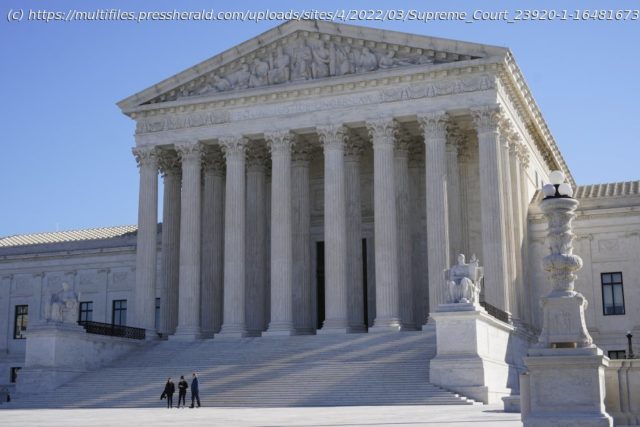The justices rule 8-1, with Clarence Thomas dissenting, in favor of a Texas inmate, who challenged a state policy that would have forced his pastor to remain silent and apart from him as he is put to death.
WASHINGTON — The Supreme Court said Thursday that states must accommodate the wishes of death row inmates who want to have their pastors pray aloud and even touch them during their executions. The court ruled in the case of a Texas inmate, John Henry Ramirez, who challenged state rules that would have forced his pastor to remain silent and apart from him as he is put to death. Chief Justice John Roberts wrote in an 8-1 opinion joined by conservative and liberal justices that “it is possible to accommodate Ramirez’s sincere religious beliefs without delaying or impeding his execution.” Some other states and the federal government have recently carried out executions where audible prayer and some physical contact were permitted in the execution chamber. Only Justice Clarence Thomas dissented. Thomas said Ramirez has repeatedly attempted to delay his execution and his current lawsuit “is but the latest iteration in an 18-year pattern of evasion.” Roberts noted that Texas “appears to have long allowed prison chaplains to pray with inmates in the execution chamber, deciding to prohibit such prayer only in the last several years.” He also rejected concerns that allowing a pastor to touch an inmate could interfere with the intravenous lines that carry the drugs used to carry out the execution. An inmate could be touched “on a part of the body away from IV lines, such as a prisoner’s lower leg,” he wrote, noting Ramirez’s lawyer had said it would be sufficient if his pastor could touch his foot. Under a federal law that protects the religious rights of prisoners, Texas needed to show both a compelling need for its policy and show that its restrictions were the least necessary to accomplish officials’ security and other goals. The justices said Texas had not done so. Roberts’ opinion also urged states to think about the religious needs of inmates in the context of executions and proactively adopt policies.






